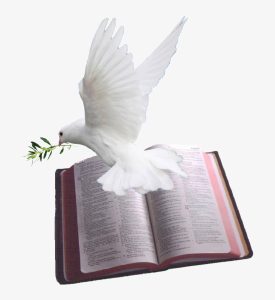Second Sunday before Advent St Andrew’s Milngavie
Today we celebrated the Second Sunday before Advent
Coming soon:
Advent Study Group – All Saints Hall Tuesdays 2pm ( 2nd 9th 16th December). We shall be using the book “Advent in Narnia” by Heidi Haverkamp. All very welcome
Advent Sunday 5pm All Saints Advent Carol Service – all welcome
This week
Tuesday 10am – Prayer Group in the Garden Room
Thursday 10am – Said Holy Communion followed by coffee in Friendship House.
Readings for next Sunday – Sunday before Advent Christ the King Jeremiah 23:1-6 Colossians 1:11-20 Luke 23:33-43
 Today’s readings – Malachi 4:1-2, 2 Thessalonians 3:6-13, Luke 21:5-19
Today’s readings – Malachi 4:1-2, 2 Thessalonians 3:6-13, Luke 21:5-19
We have reached that part of the church’s year when the lectionary, the calendar of weekly Sunday readings, treat us to what is known as the apocalyptic literature. Mystical, dramatic vivid biblical passages that speak of end times, earthly calamites and disaster. The texts are confusing, unsettling, frightening and often quite weird.
Today in Luke’s gospel Jesus is at the Temple in Jerusalem. People are admiring its beauty, talking about all the wonderful stones. Then to everyone’s shock, Jesus predicts its destruction: “Not one stone will be left upon another; all will be thrown down.” Luke 21:6 The crowd presses him about when this will happen, perhaps so they can prepare – emotionally or spiritually, and maybe financially, in case they’re going to need to rebuild it.
Jesus adds that other awful things are going to happen – there will be false prophets, wars and insurrections, nations rising against nations, natural disasters, persecutions, even betrayals by friends and family. It will look like the end times. Scholars suggest that Jesus is describing not a particular future here, but how the world works in general, as we know only too well when we read the news. When you hear of these things, Jesus says, “do not be frightened”
Jesus so often offers a word of peace in difficult times. In the calming of the storm when his friends are so scared he says “Why are you so afraid? Do you still have no faith?” Mark 4:40 . Or when Jesus appears to his disciples in a locked room when they were terrified after the crucifixion “Peace be with you” he says to them John 20:21. In fact, whenever the people around him are worried about the direction things seem to be going, peace be with you, he says, do not be afraid. We see this often in the gospels and throughout the bible
Jesus also says that whatever cataclysmic events are coming, they will provide the opportunity to testify, to bear witness. This is an odd thing to say. We usually think of testifying as something we do when a prayer has been answered, or a life saved in some way. We don’t think of everything falling apart as the time for testimony and witness. Yet Jesus is clear that that is precisely when to give an account of our faith.
And what is our faith? In the words of the letter to the Hebrews, “Faith is the assurance of things hoped for, the conviction of things not seen.” Hebrews 11:1.
As followers of Jesus, we are called to hope in God’s abiding presence and love, to hope in resurrected life, to have hope for the lost and the sick, and to hope in the coming kingdom of heaven and our citizenship there. Jesus calls us to testify to our hope. Like those who lose their Temple, we are sometimes shaken by momentous events, division, and at times, impending disaster. The world needs our hope no matter what is happening. That’s the call that comes from any good biblical apocalypse. It’s not meant to scare us, but to make us bold in our hope.
There is a gift in this kind of apocalyptic thinking, according to the late preacher Fred Craddock. He said : “Such thinking should keep our souls athletically trim, free of the weight of the excessive and useless. Such thinking should aid us in keeping gains and losses in perspective. Such thinking should chase away the demons… and cheer us with the news not only that today is a gift of God but also that in some tomorrow we will stand in the presence of the Son of man.” Hope in the bigger picture is always more powerful than fear in the present moment.
So, for all of us who are anxious about the future and find ourselves stuck in a kind of worry loop about our lives today’s gospel is for us. Christ’s divine word of peace has the power to cut through our spinning thoughts and remind us of God’s faithful presence with us. Whenever disaster strikes, or whenever we worry that it will, the false god of fear shows up and wants our allegiance. Fear wants to be fed, and it wants to be in charge. But we get to choose. The prophet Joshua once spoke to Israel with these words: “Choose for yourselves this day whom you will serve… as for me and my household, we will serve the Lord” (Joshua 24:15). The choice is ours, to serve our fear or to serve a steadfast God. From time to time, an apocalypse is a powerfully good reminder not to feed our fears.
